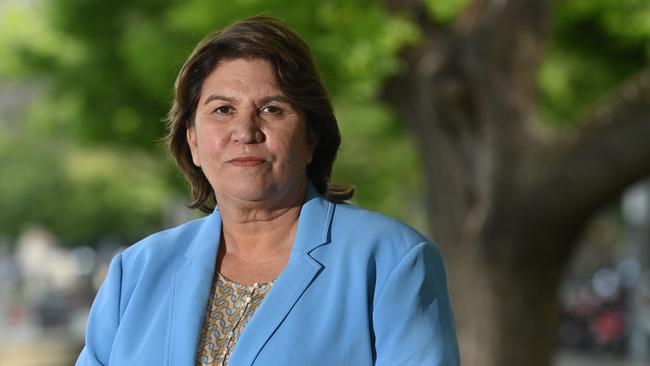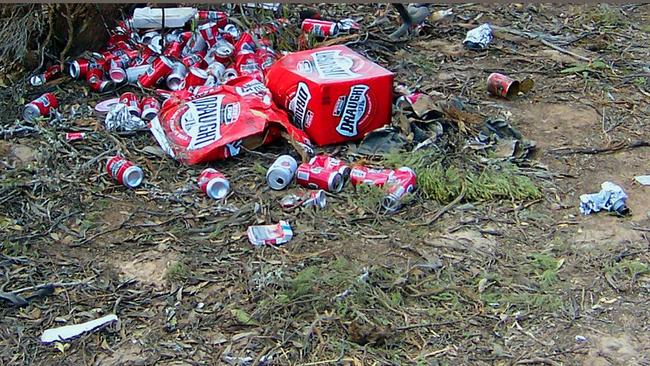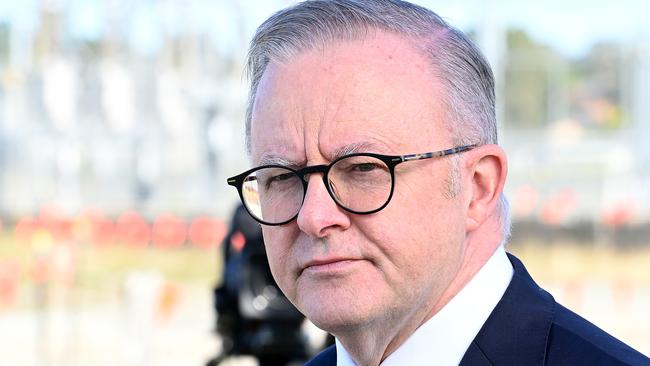Vikki Campion: Indigenous kids’ welfare has plummeted since cashless card was abolished
Indigenous children are going hungry since the cashless debit card was abolished, because kids don’t grow healthy and strong on a woke diet of acknowledgement of country and renaming islands, writes Vikki Campion.
Opinion
Don't miss out on the headlines from Opinion. Followed categories will be added to My News.
The Albanese government has regressed to where only happy children are seen but the reality is not heard.
In a report that the government tried to suppress, the heartbreaking reality emerges — children are starving, yet not a shred of evidence is taken from them.
Life has become hungrier since Labor removed the cashless debit card, which had ensured 80 per cent of Centrelink payments were used for essentials like food and clothes.
Yet, in a parliament with three different flags, members from leafy, harbourside electorates puffed on about the human rights of Indigenous communities to spend welfare how they wish, questioning hand-picked bureaucrats to tell them what they wanted to hear as if they were talking about the family next door in Mosman.
This included the Australian Human Rights Commission, which, despite its role in advocating for human rights, denied knowledge “of recent evidence showing an evaluation of the scheme”.

Days after that hearing, senators Kerrynne Liddle, Jacqui Lambie and Anne Ruston finally succeeded in an Order for the Production of Documents to reveal a government-funded report by the University of Adelaide on the Cessation of the Cashless Debit Card.
There’s no wonder why the minister’s office wanted it kept quiet.
“That little boy’s father got a pay yesterday, and he spent it all on drink and little boy come over to my place and asked me for orange. I said, I got no orange baby because I got no money to buy orange. That’s made me sad, you know, little boy crying, he was hungry, didn’t have anything to eat. The father got drunk and spent all his money on drink. Even the mother too … They don’t think about saving money for the baby,” said Ceduna Participant 3.
Did the little boy’s voice appear in the report? He was right there in front of them. Did the government-funded research involve asking that little boy for some truth-telling? No.
The cashless debit card gave women an out from having their bank account drained by an addict.
“Her partner, he does heavy drugs … she needs to stay on (the card) because she needs to make sure that her children have food,” says another.

How many kids were quoted in the report kept secret since May? Zero.
These weren’t kids having a tantrum at the checkout for a chocolate bar, these are kids lining up for an orange. It is disgraceful that we have fallen into a perverse realm where it is politically incorrect to hear from them.
South Australian Senator Liddle, the opposition spokeswoman for domestic violence prevention and child protection — who goes into Ceduna without a media plane, whose electorate covers these communities, and whose family covers more, who talks one-on-one with lived understanding — wants real data.
Senator Liddle doesn’t want a PC Canberra diatribe, she wants to know why not one child was interviewed in the report about what life is like at home now.
“Kids starving. And they on the streets and it’s really sad because they’re just roaming round … Because now that it’s gone back to cash again, parents are spending more money,” says another participant.
We are closing our eyes and forcing vulnerable children into an intoxicated dark age.
Where did the corporations offering faux virtue and funnelling millions of dollars into advertising for the pro-Voice vote go? Why aren’t they in Ceduna? Seeing you were so keen on a Voice, why don’t you listen to some of these children?
They moved to the other side of the yacht because they don’t particularly like the view. You can’t hear Ceduna from Whistler.

The Review of the Impact of the Cessation of the Cashless Debit Card attempts to sanitise “declining levels of child wellbeing and welfare since the CDC program had ended” in Ceduna, the East Kimberley and the Goldfields.
“Concerns primarily centred on some children not being fed or clothed,” said the report.
That is as far as we need to read. We have kids in Australia not being fed or clothed. Not in a civil war in Central Africa but in our resource-rich first world country.
And the source of this?
The people who live a life beyond the comprehension of those semi-naked, starving kids in the bush.
If you went to your school gate and saw a child half-naked and starving, you would immediately stop and talk to that child and drop everything to find a solution.
But not so your government. They are more worried about offending the enlightened than feeding the children. Kids don’t grow muscle or mass on a diet of acknowledgement of country and renaming islands.
The report brushes over “children increasingly experiencing situations of family violence and trauma”.
Molestation, grievous assault, that’s what happens when vulnerable little souls are fending for themselves.
Do you have a story for The Daily Telegraph? Message 0481 056 618 or email tips@dailytelegraph.com.au





